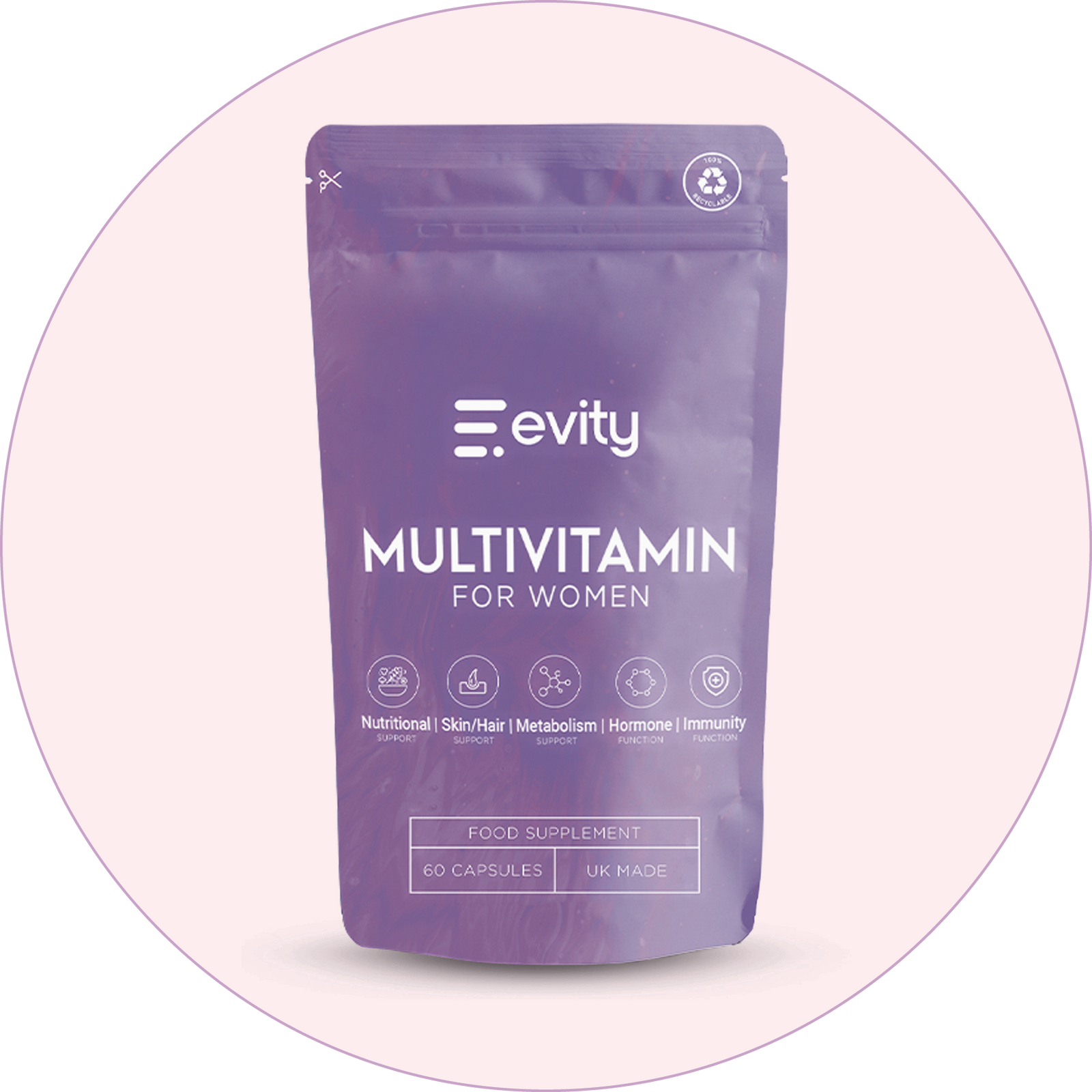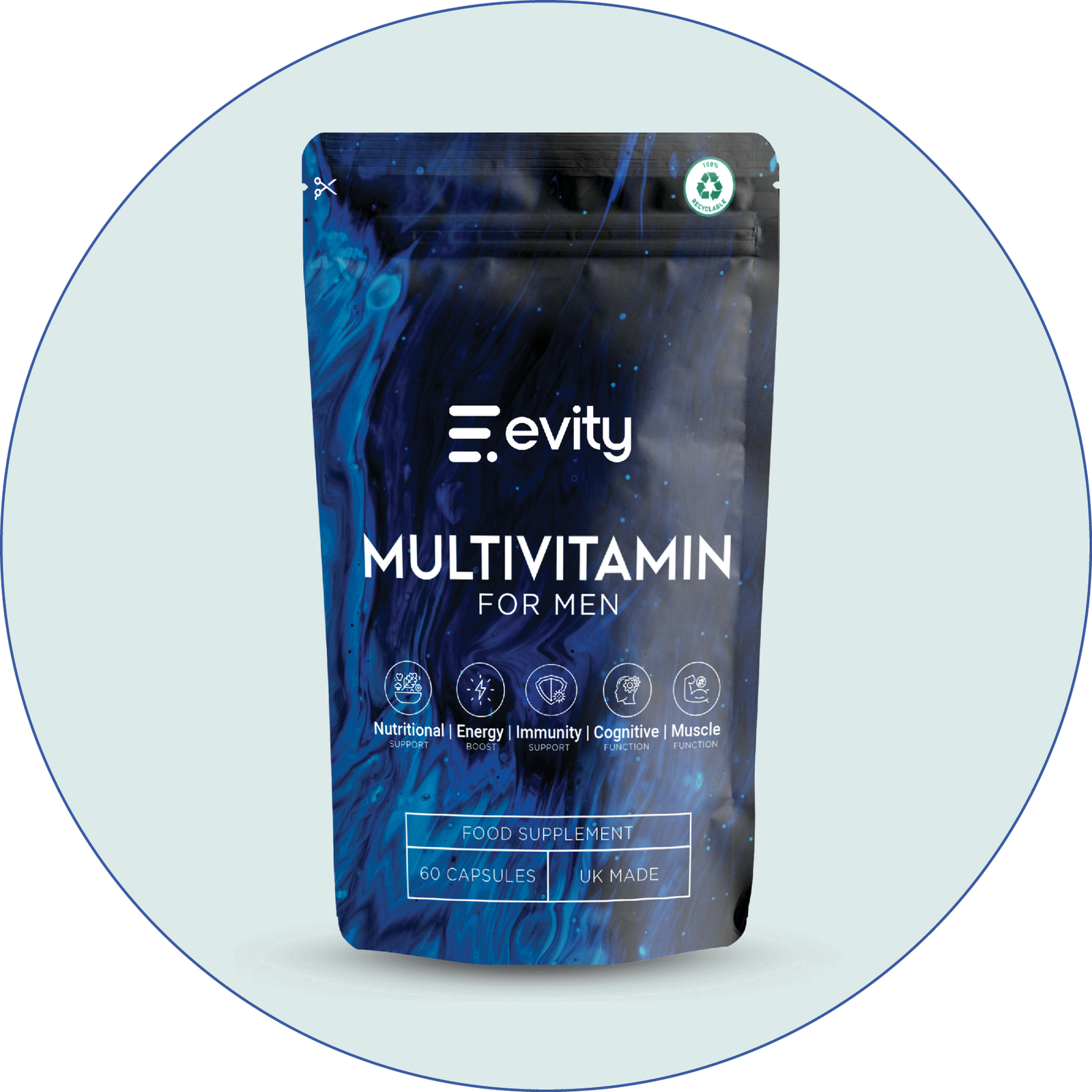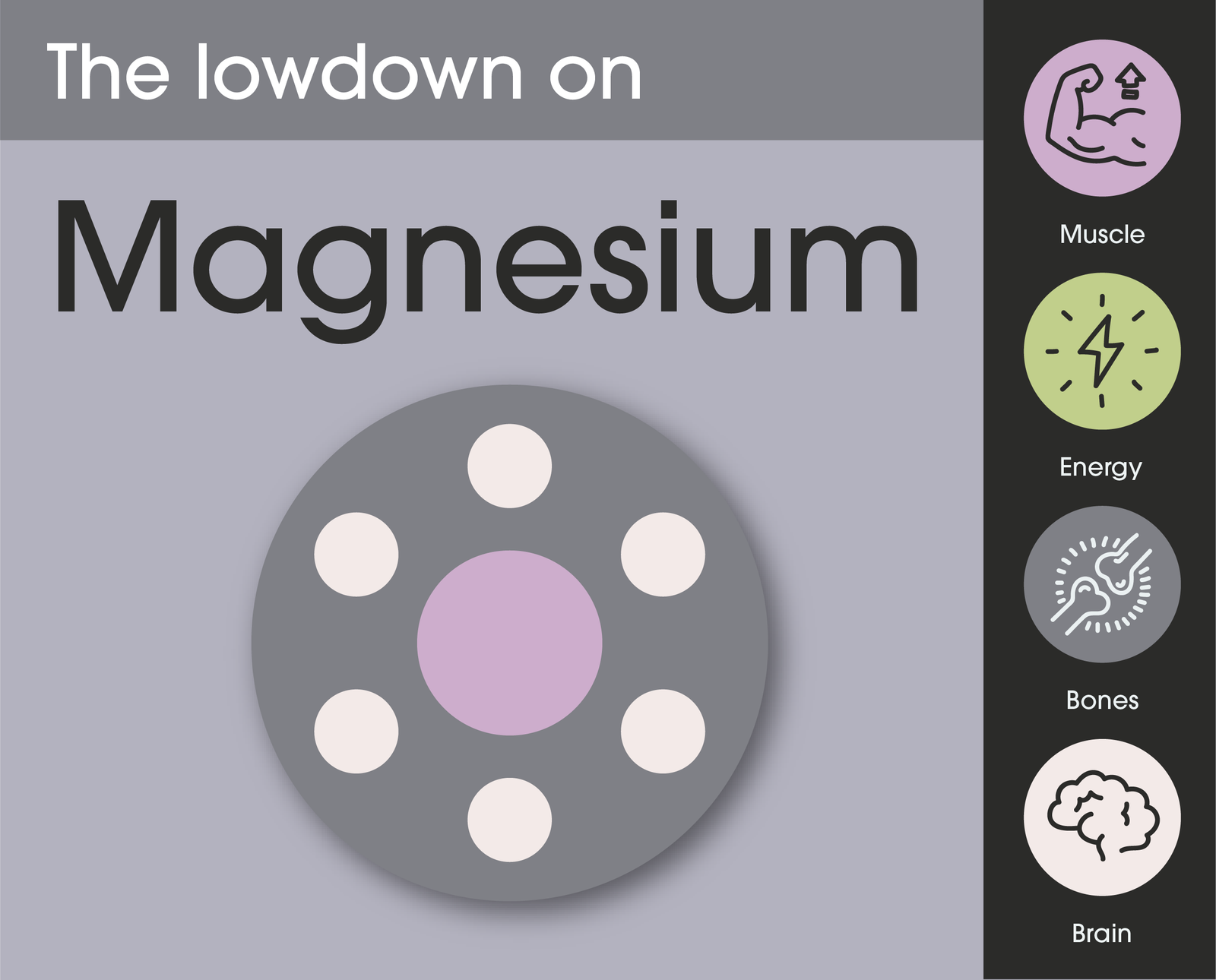
Benefits of Vitamin C in the body
Immunity
Immunity is one ofVitamin C best known functions. It supports both the born-with (innate) and developed (adaptive) immune systems. It’s important for barrier health, the first line of defence as well as various white (immunity) blood cells and its antioxidant properties for protecting all cells. Studies show that it can shorten and reduce severity of respiratory infections as well as it is depleted in illness (1,2).
Skin health
Vitamin C plays a multi-faceted role in optimal health as it’s also key forcollagen production, so has been shown to have anti-wrinkle potential (3). Its high levels in the skin, are antioxidant protective, especially with the sunsUV rays (3). It also helps with wound healing and reduction ofscar formation (3).
Cardiovascular health
Vitamin C plays a role in a number of heart health pathways, including blood pressure, balancing cholesterol, supporting healthy walls of theveins and arteries (4). Overall good vitamin C levels are associated with a lower incidences ofcardiovascular disease (4).
Iron absorption
Iron deficiency anaemia is not an uncommon condition, especially in menstruating or pregnant women. Often iron supplementation alone is poorly absorbed, but vitamin C increases absorption and can reduce side effects (5).
Why our form of vitamin C is superior
Calcium ascorbate, is a buffered form of Vitamin C. Medium to high doses of ascorbic acid can be poorly absorbed resulting abdominal cramps and diarrhoea. When combined with the mineral calcium it becomes more tolerable for better absorption and higher available daily doses.
Foods rich in vitamin C
All fruits and vegetables are great sources of Vitamin C, but those at the top of league table are;
- Guava
- Bell pepper
- Berries
- Citrus fruit
- Papaya
- Broccoli
- Tomatoes
Daily recommended intake of vitamin C
Adult RDA/NRVs are 90mg for men and 75mg for women, increasing to 120mg in pregnancy and lactation.
Supplementation is commonly is dosed at 100mg to 1g per day with 2g considered the upper tolerable limit.
Latest research of vitamin C
Allergies
There is interest in using vitamin C for allergies such as allergic rhinitis (hay fever). Some evidence suggests that low vitamin C levels are associated withhigher plasma histamine levels (6). Theoretically, people with low vitamin C levels might have worse symptoms of allergic rhinitis. There is also some evidence that vitamin C might also have weakantihistamine properties (7).
Gut health
Preliminary studies show high dose vitamin C can alter gut flora balance in a beneficial way, supportingoptimal wellbeing (8).
Anti-inflammatory
Chronic subclinical inflammation is now understood to be major driver of disease from many diseases from cancer to dementia, cardio-vascular disease and autoimmunity. Vitamin C is showinganti-inflammatory effects by lower inflammatory markers such CRP (9).
Long COVID (Post viral chronic fatigue)
Vitamin C properties, and most likely its depletion during the illness suggests that of vitamin C supplementation could potentially be part ofrecovery process (10).
Problems with overdose
As a water soluble vitamin, toxicity is unlikely however medium to high dose of unbuffered vitamin C can be poorly absorbed causing gastro-intestinal purging.
Vitamin C that is buffered with calcium is not advised to those suffering with kidney stones. This is due to it’s calcium content.
References:
- https://link.springer.com/chapter/10.1007/978-3-030-16073-9_5
- https://www.mdpi.com/2072-6643/9/11/1211
- https://www.mdpi.com/2072-6643/9/8/866/htm
- https://www.mdpi.com/1422-0067/17/8/1328
- https://www.ncbi.nlm.nih.gov/pmc/articles/PMC7607440/
- https://pubmed.ncbi.nlm.nih.gov/8951736/
- https://link.springer.com/article/10.1007/s00210-013-0880-1
- https://www.mdpi.com/2076-3921/10/8/1278
- https://www.ingentaconnect.com/content/ben/cpd/2018/00000024/00000030/art00003
- https://www.mdpi.com/2072-6643/13/4/1154





